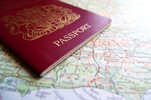Health Risks And Vaccinations
 Health Risks And Vaccinations
Health Risks And Vaccinations
Apart from the above, the country's wildlife is a great deal less wild than in many other destinations due to the remote location of the islands, with no snakes or other dangerous species. Several insect species such as sandflies can be annoying in damp areas, but are easily dealt with by the use of insect repellent.
The municipal water supplies in cites, towns and villages are safe to drink, although lakes, ponds and rivers may be home to the Giardia parasite, which causes diarrhoea. Unless you are able to boil, filter or chemically treat it, don't drink it, however tempting, clean and sparkling it may seem.
New Zealand's beaches are generally safe, with those with potential dangers usually employing lifeguards indicating the safest swimming areas by carefully-placed red and yellow flags. Rip currents can occur, and swimming alone is not recommended. Changeable weather might be a risk as sea conditions are affected.
If you're planning a trip in remote areas, letting a friend know when and where you will be going is a sensible precaution, particularly if you enjoy adventure sports. Again, the changeable weather here may cause problems, especially in alpine regions, where a personal locator beacon should be carried.
Violence is uncommon, even in urban areas, but common sense in looking after personal possessions is the rule anywhere in the world, including New Zealand. Your home and vehicle should be kept locked when unattended, and valuables should be stored in a safe place and never left in your car. In Auckland and other large cities, pickpockets do operate near airports, ferry terminals and rail stations, and suitcases or bags should never be left unattended.


